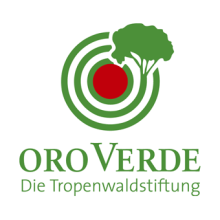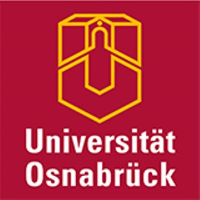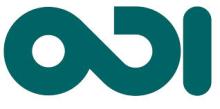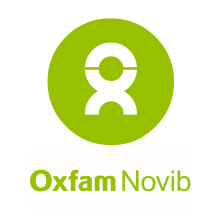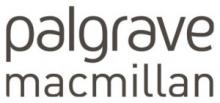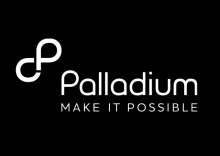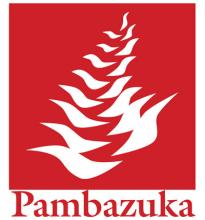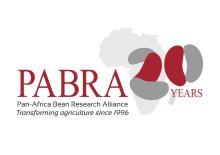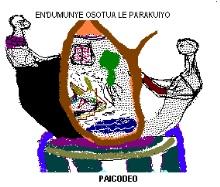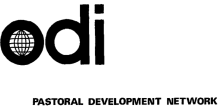La Biblioteca de la Tierra incluye recursos de más de 1.890 proveedores de información nacionales e internacionales. Aprenda más sobre las organizaciones e instituciones que utilizan el Land Portal para compartir sus investigaciones, datos e historias con acceso abierto.
OpenEdition Books
OpenEdition is a portal of electronic resources in the humanities and social sciences.
If you want your institution to subscribe to additional services and give you access to detachable formats (PDF, ePub), consult the Institutions pages.
Operação Amazônia Nativa
Entre os objetivos da OPAN estão a defesa dos direitos humanos, o apoio a povos indígenas e populações tradicionais, o reconhecimento dos direitos indígenas, a conservação do meio ambiente, o desenvolvimento de pesquisas antropológicas, socioeconômicas e ambientais, além da formação de equipes para a execução de projetos. Nesse sentido, é histórica a contribuição da OPAN na capacitação de indigenistas através de seu curso de formação, oferecido em diferentes modalidades ao longo de toda a sua história.
Desde os anos 70, a OPAN colaborou com a organização das primeiras assembleias indígenas no país e com a formulação e execução de políticas indigenistas voltadas aos interesses, necessidades e especificidades socioculturais dessas comunidades.
As principais formas de atuação das equipes indigenistas da OPAN incluem a proteção das terras indígenas por meio de programas de vigilância, monitoramento, gestão territorial, fortalecimento das organizações indígenas, formação política, fomento às cadeias de produtos da sociobiodiversidade, soberania alimentar, geração de renda e desenvolvimento sustentável.
Todos os povos com os quais a OPAN trabalhou nesses 50 anos têm suas terras demarcadas, tendo sido especialmente significativas as experiências de autodemarcação. A instituição contribuiu diretamente com a demarcação de 13 milhões de hectares no Amazonas em parceria com os povos Kulina, Kanamari, Katukina, Deni, Zuruaha, Kanamati/Jarawara, Apurinã, Marubo, Matis, Korubo, Mayoruna, Paumari, Jamamadi, Tenharim e Parintintim. Em Mato Grosso, a OPAN desenvolveu trabalhos pela defesa de três milhões de hectares de terras indígenas com os povos Paresi, Cinta Larga, Arara, Karajá, Kayabi, Enawene Nawe, Nambikwara, Manoki, Myky e Xavante de Marãiwatsédé.
Os programas de saúde sempre foram uma prioridade na OPAN, que atuou, com equipes especializadas, no controle de epidemias, capacitação de técnicos indígenas, imunização, valorização de saberes e práticas tradicionais, entre outras ações. Por 12 anos, a OPAN foi conveniada com a Funasa, prestando excelentes serviços de atendimento à saúde indígena no Pólo Brasnorte, no norte de Mato Grosso. No campo da educação, a OPAN se destacou na organização dos encontros de educação indígena nos anos 80, de professores indígenas e organização de conselhos, que foram a base para as políticas públicas neste setor atualmente implantadas pelo governo brasileiro.
Mais recentemente, a OPAN tem investido na proposição e acompanhamento de experiências no campo das alternativas econômicas através do fortalecimento e promoção de formas sustentáveis manejo na Amazônia e no Cerrado. As equipes indigenistas também problematizam e refletem com os indígenas sobre práticas de consumo, capacitação para a apropriação de tecnologias de manejo e produção.
Em 2001, a OPAN foi reconhecida pela Assembleia Legislativa do estado do Mato Grosso pela luta em favor dos povos indígenas. Em 2006, recebeu o Prêmio Chico Mendes, concedido pelo Ministério do Meio Ambiente (MMA), na categoria organização não-governamental pela atuação marcante na Amazônia brasileira e por ter contribuído, de forma notável, para o aumento da participação de populações indígenas nas decisões que afetam seu modo de vida. Em 2015, a iniciativa de manejo sustentável do pirarucu junto ao povo Paumari do rio Tapauá, no Médio Purus, recebeu o Prêmio Nacional da Biodiversidade, também concedido por esse ministério. No mesmo ano, a prática foi certificada como tecnologia social pela Fundação Banco do Brasil.
Opulus Press
Opulus Press was founded in 1989, and became soon involved in science publishing. We strongly believe that also small companies can produce fast and high quality publishing and information services. It is our aim to offer top journals at affordable prices, and we are proud that both Applied Vegetation Science and the Journal of Vegetation Science are included in the SPARC Alternative programme. The Alternative program supports lower-cost, directly competitive journals as an alternative for academic disciplines formerly dependent on high-priced journals. Opulus has its offices in the village of Grangärde, situated in the countryside in the middle part of Sweden.
Organisation for Economic Co-operation and Development (OECD)
Mission
The mission of the Organisation for Economic Co-operation and Development (OECD) is to promote policies that will improve the economic and social well-being of people around the world.
The OECD provides a forum in which governments can work together to share experiences and seek solutions to common problems. We work with governments to understand what drives economic, social and environmental change. We measure productivity and global flows of trade and investment. We analyse and compare data to predict future trends. We set international standards on a wide range of things, from agriculture and tax to the safety of chemicals.
We also look at issues that directly affect everyone’s daily life, like how much people pay in taxes and social security, and how much leisure time they can take. We compare how different countries’ school systems are readying their young people for modern life, and how different countries’ pension systems will look after their citizens in old age.
The OECD’s core values
- Objective: Our analyses and recommendations are independent and evidence-based.
- Open: We encourage debate and a shared understanding of critical global issues.
- Bold: We dare to challenge conventional wisdom starting with our own.
- Pioneering: We identify and address emerging and long term challenges.
- Ethical: Our credibility is built on trust, integrity and transparency.
Organización Nacional de Mujeres Indígenas Andinas y Amazónicas del Perú
La Organización Nacional de Mujeres Indígenas Andinas y Amazónicas del Perú (ONAMIAP) nació el 25 de noviembre de 2009, el Día Internacional contra la Violencia hacia la Mujer, como resultado de un largo proceso de formación, debate y articulación entre hermanas de diversas regiones. Nuestro congreso fundacional fue realizado con mucha alegría y sirvió como un espacio para estrechar nuestros lazos y tomar la decisión de constituirnos como una organización donde las mujeres originarias podamos expresar nuestras voces, que por muchos años fueron calladas e invisibilizadas.
Es así que elaboramos nuestro primer Plan Estratégico 2010-2015 a partir de los aportes dados por todas quienes participamos y dimos testimonio de las diferentes situaciones que enfrentamos en nuestras comunidades y organizaciones. En este documento de gestión plasmamos nuestras demandas y también nuestras propuestas, fortalezas, debilidades, oportunidades y amenazas, en base a las que definimos nuestra visión, misión y los ejes estratégicos prioritarios de nuestra agenda.
Poco a poco y con mucho trabajo, comenzamos a tener una mayor presencia pública en diferentes espacios, siempre con propuestas claras y luchando por posicionar las voces de las mujeres indígenas andinas y amazónicas. El año 2012, participamos activamente en el proceso de reglamentación de la Ley de Consulta Previa, lo que nos visibilizó a nivel nacional. Ese año también logramos que el Estado nos reconozca como una organización de mujeres indígenas de representación nacional y empezamos a participar en diferentes espacios. Este trabajo fortaleció nuestra propia estructura, afianzó la información y articulación con nuestras bases regionales y locales.
En diciembre del 2012 realizamos nuestro II Congreso Nacional y renovamos nuestro Consejo Directivo. Además, debatimos y reflexionamos sobre nuestro camino a seguir y el nuevo contexto y desafíos que teníamos que enfrentar. Entonces, nos planteamos desarrollar acciones dirigidas a fortalecer nuestro trabajo en dos ámbitos: el interno de fortalecimiento organizativo de nuestras bases, y el externo de incidencia para posicionar nuestras propuestas en la agenda pública.
El 2013 iniciamos nuestro Programa de Formación en Vocería Indígena para fortalecer nuestras capacidades de liderazgo y estar preparadas en los diferentes ámbitos en los que teníamos que desenvolvernos, como los medios de comunicación y los espacios de toma de decisiones. Hermanas andinas y amazónicas de diferentes regiones pasamos por esta escuela y nos fortalecimos y articulamos siempre acompañándonos mutuamente y propiciando el diálogo intergeneracional.
Desde entonces, el programa de vocería ha contribuido a fortalecernos como organización y a la formación de nuevos cuadros. Además, reforzó el liderazgo de diferentes lideresas andinas y amazónicas, quienes después llegamos a ocupar cargos y a liderar otros procesos en nuestras comunidades, organizaciones mixtas y en los diferentes niveles de gobierno. Es por ello, que el Estado y las organizaciones de la sociedad civil nos comenzaron a consultar y convocar a procesos relacionados a los derechos de los pueblos y las mujeres indígenas, así como otros temas sociales, ambientales, de defensa de los derechos humanos, entre otros.
El 2014 participamos por primera vez en Vigésima Conferencia de Partes de Naciones Unidas sobre Cambio Climático (COP20), que se realizó en nuestro país y junto a las organizaciones del Pacto de Unidad presentamos nuestras propuestas, consolidadas en el Programa Nacional de Adaptación Climática Comunitaria (PRONACC), para enfrentar la crisis climática mundial que afecta principalmente a nuestras comunidades campesinas y nativas. Desde entonces, hemos participado en la COP cada año, siempre llevando nuestras propuestas y demandas para lograr una participación efectiva de las mujeres en las diferentes políticas, programas, planes y medidas de mitigación y adaptación al cambio climático de los diferentes niveles y sectores de gobierno.
En noviembre de 2015 realizamos nuestro III Congreso Nacional y nuevamente mujeres andinas y amazónicas nos congregamos en Lima para renovar nuestro compromiso de lucha y también para elegir a nuestro nuevo Consejo Directivo. Ese año comenzamos a trabajar con mucha fuerza por la revaloración de nuestras identidades culturales y por la autoidentificación étnica, en el marco de la inclusión de la variable étnica en los Censos Nacionales 2017.
En marzo de 2019 nos volvimos a encontrar para llevar a cabo nuestro IV Congreso Nacional, donde renovamos nuestro Consejo Directivo y reafirmamos nuestro compromiso de continuar avanzando hacia el ejercicio pleno de nuestros derechos como pueblos y como mujeres indígenas, para alcanzar el Buen Vivir y la Vida Plena.
Desde nuestra fundación como organización no hemos dejado de trabajar incansablemente por el fomento de la participación política de las mujeres indígenas en todos los espacios, desde el comunal, local y regional hasta el nacional e internacional. Además, continuamos con el fortalecimiento de las capacidades de nuestras bases en derechos humanos colectivos e individuales, particularmente en territorio, consulta y consentimiento previo, libre e informado y erradicación de todas las formas de racismo, violencia y discriminación. También hemos aportado a la elaboración de informes alternativos a organismos de la ONU.
Hasta el momento contamos con instituciones y organizaciones indígenas aliadas, con quienes hemos suscrito diversos convenios de cooperación para continuar trabajando por el pleno ejercicio de los derechos de los pueblos y mujeres indígenas del Perú. Asimismo, hemos participado activamente y siempre con propuestas en los diferentes procesos de consulta previa nacionales que se han realizado como: la reglamentación de la Ley Forestal y de Fauna Silvestre, la Política Sectorial de Salud Intercultural y el Reglamento de la Ley Marco sobre Cambio Climático.
Organization of American States
The Organization of American States is the world’s oldest regional organization, dating back to the First International Conference of American States, held in Washington, D.C., from October 1889 to April 1890. That meeting approved the establishment of the International Union of American Republics, and the stage was set for the weaving of a web of provisions and institutions that came to be known as the inter-American system, the oldest international institutional system.
The OAS came into being in 1948 with the signing in Bogotá, Colombia, of the Charter of the OAS, which entered into force in December 1951. It was subsequently amended by the Protocol of Buenos Aires, signed in 1967, which entered into force in February 1970; by the Protocol of Cartagena de Indias, signed in 1985, which entered into force in November 1988; by the Protocol of Managua, signed in 1993, which entered into force in January 1996; and by the Protocol of Washington, signed in 1992, which entered into force in September 1997.
The Organization was established in order to achieve among its member states—as stipulated in Article 1 of the Charter—"an order of peace and justice, to promote their solidarity, to strengthen their collaboration, and to defend their sovereignty, their territorial integrity, and their independence."
Today, the OAS brings together all 35 independent states of the Americas and constitutes the main political, juridical, and social governmental forum in the Hemisphere. In addition, it has granted permanent observer status to 69 states, as well as to the European Union (EU).
The Organization uses a four-pronged approach to effectively implement its essential purposes, based on its main pillars: democracy, human rights, security, and development.
OroVerde – The Tropical Forest Foundation
Founded in Germany by individuals from business and the natural sciences in 1989, OroVerde (“Green Gold”) is a non-profit foundation that initiates, supports, and promotes projects that conserve tropical forests. Though headquartered in Bonn, Germany, OroVerde works on projects in Indonesia and many countries in Latin America and the Caribbean, including Guatemala, Mexico, Venezuela, Ecuador, Dominican Republic and Cuba.
In its projects abroad, the organization focuses on creating permanently effective contributions to forest protection by choosing carefully selected, reliable local partners to implement projects. In Germany, OroVerde promotes environmental education, raise awareness about rainforest protection, and builds networks between entrepreneurs and the restoration economy.
One of the focus countries of OroVerde's work is Guatemala. Since 2003, OroVerde has been working closely with the Fundación Defensores de la Naturaleza in different projects and regions of the country and since 2012 also with Heifer International Guatemala. One example is the current OroVerde project "Forest Values - Innovative Partnerships for Forest Restoration", which aims to promote socially responsible forest landscape restoration and to develop innovative financing models with the private sector. Various components help create value chains and other funding or donation opportunities that open the door to a more progressive promotion of forest regeneration and protection. The project is supported by the International Climate Initiative (IKI) of the German Federal Ministry for the Environment, Nature Conservation, Building and Nuclear Safety (BMUB).
Another example of OroVerde's work related to FLR is an analysis of how the concept of Impact Investments is implemented in practice and how far these investment opportunities have the potential to mobilize private capital for the protection of forests and biodiversity.
Osnabrück University
Osnabrück University, founded in 1974, is a young, vibrant university in northwest Germany that is renowned for its research and teaching in the areas of Humanities, Social Sciences, Science, Law and Business Administration/Economics. The University provides ideal conditions for about 13.500 students and PhD students to learn and conduct research. Both its structured PhD programs and modular degree programs feature high standards of quality; they are accredited, and lead to the conferral of internationally recognized degrees.
One feature of Osnabrück University is the extent to which it combines different scientific disciplines in research and teaching. Thinking beyond the borders of individual fields of expertise is fostered in the interdisciplinary institutes of Migration Research, Cognitive Science, Early Modern Intercultural Studies and Environmental Systems Research. Biology at Osnabrück is renowned both at home and abroad for its Collaborative Research Centre “Physiology and dynamics of cellular micro-compartments (CRC 944)”. The European Legal Studies Institute at Osnabrück University is one of Europe’s most important research facilities in the field of comparative law and the harmonization of law.
Institute of Environmental Systems Research
The Institute of Environmental Systems Research (USF) is a multi-departmental institution of the Departments of Mathematics/Computer Science, Biology/Chemistry, Cultural Studies and Geosciences, Physics and Economics. ESR develops interdisciplinary concepts and methods across traditional scientific disciplines and at the interface between the natural and social sciences to improve understanding of and find solutions for complex environmental problems. The main research areas undertaken at the Institute include analysis and modelling of socio-ecological systems, mathematical biology and ecology, environmental exposition and risk analysis, water resource management systems and societal transformation processes towards sustainability.
Overseas Development Institute
The Overseas Development Institute (ODI) is the UK's leading independent think tank on international development and humanitarian issues.
Mission
Our mission is to inspire and inform policy and practice which lead to the reduction of poverty, the alleviation of suffering and the achievement of sustainable livelihoods in developing countries.
We do this by locking together high quality applied research, practical policy advice, and policy-focused dissemination and debate.
We work with partners in the public and private sectors, in both developing and developed countries.
Values
- Independence: ODI’s research, public affairs and policy advice are independent from its funders, and staff are able to challenge donor thinking and policy and the wider development consensus.
- High quality: Best practice, innovative approaches and continuous improvement are ensured in research, policy advice and public affairs.
- Fairness, diversity and equality: All staff and partners are treated fairly and with respect. ODI employment, disciplines and processes are appropriate for an institute focused on international development.
- Working together: There is continuous effort to foster better relationships throughout the organisation.
- Transparency and accountability: There is open reporting on the use of public funds, with full communication of our work to our donors, research subjects and partners.
- Sustainability: Resources are used in a sustainable way that reflects consciousness of the impact on the environment. The organisation works in a way that is sustainable, backed by commitment to its long-term viability.
Oxfam America
Mission & Vision
Oxfam America is a global organization working to right the wrongs of poverty, hunger, and injustice. As one of 17 members of the international Oxfam confederation, we work with people in more than 90 countries to create lasting solutions. Oxfam saves lives, develops long-term solutions to poverty, and campaigns for social change.
Our vision: A just world without poverty.
Our mission: To create lasting solutions to poverty, hunger, and social injustice.
How do we fix the injustice of poverty?
Oxfam’s approach is about tackling the conditions that cause poverty in the first place, rather than the distribution of material goods. We start by asking questions and challenging assumptions. What are the root causes of poverty? What can we do to change the power dynamics that keep people poor? These questions inform the four categories into which our work falls:
- Saving lives: Oxfam assists the poorest communities when disaster strikes, but is also working to ensure greater local resilience and the capacity of local responders and governments to deliver disaster response.
- Programs to overcome poverty and injustice: Oxfam invests in programs to help people assert their rights so that they can improve their lives.
- Campaigning for social justice: Oxfam works to change the laws and practices that keep people trapped in poverty.
- Public education: As part of our efforts to overcome poverty, Oxfam works to change the way people think about poverty and its causes.
Oxfam Australia
Our vision, values & goals
We believe that poverty is unjustifiable and preventable, that the present state of inequality and injustice must be challenged, and that with the right help, poor people can change their lives for the better.
Our vision
Oxfam’s vision is a just world without poverty. We envisage a world in which people can influence decisions that affect their lives, enjoy their rights, and assume their responsibilities—a world in which everyone is valued and treated equally.
Our purpose
Oxfam strives to help create lasting solutions to the injustice of poverty. We are part of a global movement for change, one that empowers people to create a future that is secure, just, and free from poverty.
Read our Purpose and Beliefs in full.
Our goals
We have one main goal: to bring about positive change in the lives of people living in poverty.
To achieve this goal, we have established our central commitments and twelve goals that are outlined in our2014 —2019 Strategic Plan.
To achieve our commitment to reconciliation between Aboriginal and Torres Strait Islander peoples and other Australians, we’ve developed a detailed Reconciliation Action Plan in consultation with Reconciliation Australia and our Aboriginal and Torres Strait Islander Peoples’ Program staff.
Oxfam Brasil
Somos uma organização brasileira, que faz parte de um movimento global contra a pobreza, a desigualdade e a injustiça. Após mais de 50 anos de atuação no Brasil, marcada por uma história de luta e compromisso com os direitos humanos e a democracia, surgiu, em 2014, a Oxfam Brasil, uma organização brasileira, afiliada à confederação Oxfam. A partir de 2015, a Oxfam Brasil inicia suas atividades, trabalhando com outras organizações da sociedade civil, na luta e compromisso pela construção de um país mais justo, sustentável e solidário.
Missão
Contribuir para a construção de um Brasil justo, sustentável e solidário que elimine as causas da pobreza e da desigualdade. Trabalhamos com parceiros e aliados como parte de um movimento nacional e global pela transformação social.
Visão
Queremos um Brasil justo, sem pobreza e desigualdade, onde as pessoas sejam respeitadas em sua diversidade e tratadas com igualdade. Uma sociedade na qual cidadãs e cidadãos exerçam de forma plena seus direitos e participem ativamente das decisões políticas.
Oxfam Great Britain
Oxfam is a global movement of millions of people who share the belief that, in a world rich in resources, poverty isn't inevitable. In just 15 years, extreme poverty has been halved. 15 more years and we can end it for good.
To spread that change and make it last, political solutions are also needed to tackle the root causes of poverty and create societies where empowered individuals can thrive.
We will always act, we will speak out, and we won't live with poverty.
Oxfam India
Oxfam India works primarily through grassroots organisations to bring deep-rooted sustainable changes in people’s lives. We work for the poorest and the socially excluded communities by mobilising them to campaign for greater economic and social reforms.
Oxfam is celebrating its 67th year of humanitarian service in India. In 1951, Oxfam Great Britain launched its first full scale humanitarian response to the Bihar famine. In the past six decades Oxfam has supported civil society organisations across the country. In 2008, various Oxfams in India joined forces to form Oxfam India. Registered as an independent organisation, Oxfam India has indigenous staff and board members. We are a member of the global confederation of 20 Oxfams.
Oxfam India’s vision is to help create an equal, just and sustainable society by empowering the underprivileged. Oxfam India believes in the ‘Right to Life with Dignity for All’. This is fulfilled by engaging empowered citizens to become active and supportive partners, advocating an effective and accountable State and making markets work for the underprivileged.
Oxfam International
Our Vision
Our vision is a just world without poverty. We want a world where people are valued and treated equally, enjoy their rights as full citizens, and can influence decisions affecting their lives.
Our Purpose
Our purpose is to help create lasting solutions to the injustice of poverty. We are part of a global movement for change, empowering people to create a future that is secure, just, and free from poverty.
Achieving our Purpose
We use a combination of rights-based sustainable development programs, public education, campaigns, advocacy, and humanitarian assistance in disasters and conflicts.
We challenge the structural causes of the injustice of poverty, and work with allies and partners locally and globally.
Oxfam Novib
Mission and Vision
A just world, without poverty. That is our mission. We believe that people can build independent livelihoods, provided their rights are respected. That is why we help people around the world to stand up for their rights.
1. Right to sustainable livelihood resources
Everybody must be sure of a fair income and enough to eat. Yet this is not the case for 20% of the world’s population. That is why we are working on better access to land and water, and on fair working and trading conditions.
2. Right to basic social services
Education and health care are essential for building better societies. Yet even as we make progress towards universal primary education, around the world, there are still 130 million kids in school who fail to learn basic reading, writing and maths. When governments fail to deliver, Oxfam together with partner organizations invest in quality basic social services.
3. Right to life and security
Natural disasters, climate change and armed conflicts hit millions of people every year. We support them with relief aid and reconstruction. And we prepare people to prevent or mitigate the effects of disasters and conflicts.
4. Right to social and political participation
Knowledge is power. We believe that when people can participate in public decisions that affect them, they can build independent livelihoods and thriving communities.Together with partners we give people access to information and a voice.
5. Right to an identity
Gender inequality is both a violation of human rights and an obstacle to sustainable development. In a just world there is no place for the discrimination of women and minorities.
Our Core Values
When people’s basic rights are respected, we can rid the world of poverty and injustice. This is what we stand for:
- Empowerment
We work on the basis of the power and potential of people. We provide practical and innovative solutions to empower people to build their livelihoods without poverty.
- Accountability
We call on those in power to consider people in a vulnerable position in word and action. And we of course account for our own work to governments, donors, supporters, volunteers, corporations and almost 17 million Dutch men and women.
- Inclusiveness
We are all equal, irrespective of the accident of birth, gender, faith or sexual orientation. In all our work we give special attention to the position and rights of women and minorities. And given the potentially pivotal role of women as agents of change, gender justice is at the heart of everything we do.
Oxfam Vietnam
Oxfam is a world-wide development organisation that mobilizes the strength and voice of people against poverty, inequality and injustice.
Oxfam’s vision is a just world without poverty: a world in which people can influence decisions that affect their lives, enjoy their rights, and assume their responsibilities as full citizens of a world in which all human beings are valued and treated equally.
We are an international confederation of 18 Oxfam organisations working together in more than 90 countries. Oxfam works with partner organisations and alongside vulnerable women and men to end injustices.
All Oxfam’s work is framed by our commitment to five broad rights-based aims:
The right to a sustainable livelihood
The right to basic social services
The right to life and security
The right to be heard
The right to an identity
Oxfam in Vietnam
Oxfam’s first activities in Vietnam took place in 1955, when we provided humanitarian assistance. Since the late 1980s we have implemented a number of development projects across Vietnam aimed at reducing poverty. After Vietnam reached the lower-middle income benchmark in 2010, the needs of the poorest and most marginalised groups in society remain high; Oxfam’s country strategy has shifted accordingly to addressing inequality. We seek transformative changes in policies, practices and beliefs in ways that will fundamentally improve the lives of poor and marginalised women and men, and ensure that all citizens have the same opportunity to enjoy their rights.
Oxfam’s Vietnam country strategy (Vietnam OCS 2015-2019.pdf) contributes to shaping the debate on extreme inequality in Vietnam and globally. We seek to change the current narrative that inequality is acceptable and inevitable. We work in partnership with government, civil society, businesses, communities, media, research institutions and think tanks to influence policy and practices aiming at reversing economic, gender and social inequalities.
Oxford University Press
Oxford University Press is the largest university press in the world, publishing in 70 languages and 190 countries. Our Global Academic Publishing program spans the entire academic and higher education spectrum, including a wide array of scholarly and general interest books, journals, and online products.
Mission
At OUP, we believe in the power of the written word and the scholarship that stands behind it. Everything we publish relates directly to our mission: to support Oxford University's objective of excellence in research, scholarship, and education. As a press, we take pride in this mission, which allows us to enable, support, and facilitate research and scholarship.
Pacific Islands Legal Information Institute
PacLII stands for the Pacific Islands Legal Information Institute. It is an initiative of the University of the South Pacific School of Law with assistance from AustLII. PacLII is a signatory to the Montreal Declaration on Public Access to Law and participates in the Free Access to Law movement, (FALM) a grouping of a number of world wide organizations committed to publishing and providing access to the law for free. PacLII is based at the Emalus Campus of the USP in Port Vila, Vanuatu.
USP School of Law is based in Port Vila and has students located across 12 countries of the Pacific who do not have easy access to the legal materials from across the region which they need to undertake their studies. PacLII was started by the School of Law as a means to overcoming the tyrannies of distance. It has grown to become a service to governments, legal professionals, NGOs, students, academics and members of the public and has been widely recognized as an example of excellence in promoting access to legal information.
PacLII collects and publishes legal materials from 20 Pacific Islands Countries on its website www.paclii.org which is hosted by AustLII. These countries are American Samoa, Cook Islands, Commonwealth of Northern Mariana Islands, Federated States of Micronesia, Fiji, Guam, Kiribati, Marshall Islands, Nauru, Niue, New Caledonia, Palau, Papua New Guinea, Pitcairn Islands, Samoa, Solomon Islands, Tokelau, Tonga, Tuvalu and Vanuatu.
The materials consist mainly of primary materials such as court decisions and legislation but also include decisions of various tribunals, panels, Ombudsmens reports or secondary information such as court rules or bench books. PacLII is now seeking to expand its collections to include law related materials such as subject specific papers and reports. PacLII is also developing a series of subject specific libraries utilising predetermined search technology. An Intellectual Property and a Maritime Law Library have been created and more are planned. A number of Pacific Islands Treaties are also available but direct access to the database has been suspended due to a current lack of capacity.
PAGEPress Publications
PAGEPress is an Open Access scientific publisher run by a team that has been developing services for the international scientific community since 1992.
Initially PAGEPress (formerly known as Medit), took charge of the production management of Haematologica (both print and online versions) providing its publishing services in outsourcing for this journal. Then, it was added another important publication, the European Journal of Basic and Applied Histochemistry (now, European Journal of Histochemistry) distinguishing itself for its professional quality of scholarly publishing.
In 2008, the lack of specialized professional organizations on the Italian market led Michele Moscato (founder and CEO at PAGEPress) to create the PAGEPress brand. Thanks to his experience (former librarian at the University of Pavia and then Production Manager of Haematologica, for which he held the position of Production Supervisor for more than 20 years), PAGEPress has rapidly grown to become a leader in its field, providing quality and innovative publishing services. Today it enjoys the loyalty of universities, international associations and scientific societies that entrust it with the development of their publications.
It was our commitment to making the results of academic research available to the international community that gave birth to the idea of a publisher entirely devoted to Open Access with the desire to spread academic knowledge. PAGEPress started off with 6 journals and is now the provider of more than 90 Open Access scientific publications in a variety of fields. For over eight years now, PAGEPress has strived to promote the circulation of scientific research, offering cost-effective solutions to authors, libraries and scientific societies.
PAGEPress strongly believe in the Open Access model: free, digital, online and exempt from most copyright restrictions, all factors that allow publications to be read, down-loaded and re-mixed by anyone who needs them for his or her own research. What’s more, we believe in a proficient and high-quality organization in which scientists, editors, reviewers and product managers work together to promote the accurate dissemination of scientific results.
The company is registered with the Chamber of Commerce in Pavia, Italy (number IT02125780185) according to the provisions of Italian Commercial Law.
PAGEPress’ name and logo are trademark registered in Pavia, 2009. The company is the property of a single entity (60% shareholder) and a panel of other smaller investors (40%).
Palabra
Este es el portal de venta de la editorial Palabra que nace en 1965. Una editorial española con una larga trayectoria en el sector.
Actualmente es una referencia en la formación humana y de la familia para a un público general. El espíritu dinámico de Palabra continúa hoy con un catálogo de más de 900 títulos y cerca de 40 colecciones.
Palgrave Macmillan
We publish award-winning research which changes the world across the humanities, social sciences and business for academics, professionals and librarians. We offer authors and readers the very best in academic content whilst also supporting the community with innovative new formats and tools.
With offices in London, New York and Shanghai, and sales teams across 50 countries, we have a global reach. As part of Springer Nature, we are proud to uphold an unbroken tradition of over 170 years of academic publishing.
Palladium
Palladium is in the business of making the world a better place, and we believe that collaborative models and systemic approaches are the way to achieve progress and success.
It's no longer enough to pursue social progress or commercial growth. In fact, we don't believe you can have one without the other. When you have both, that's what we call "Positive Impact".
For the past 50 years, we’ve been helping our clients to see the world as interconnected – by formulating strategies, building partnerships, and implementing programmes that have a lasting social and financial impact.
The future demands new thinking, new approaches, and new solutions. With a global network operating in over 90 countries, we believe in a better world, and we work to make it possible.
OUR PURPOSE
To catalyse an enriched future for all.
Palladium (Palladium International) is in the business of making the world a better place, and we believe that collaborative models and systemic approaches are the way to achieve progress and success.
It's no longer enough to pursue social progress or commercial growth. In fact, we don't believe you can have one without the other. When you have both, that's what we call "Positive Impact".
For the past 50 years, we’ve been helping our clients to see the world as interconnected – by formulating strategies, building partnerships, and implementing programmes that have a lasting social and financial impact.
The future demands new thinking, new approaches, and new solutions. With a global network operating in over 90 countries, we believe in a better world, and we work to make it possible.
Pambazuka News
Pambazuka News is an open access, Pan-African e-mail and online electronic newsletter. It is published weekly in English, Portuguese and French by Fahamu. The word Pambazuka means 'dawn' or 'arise' in Kiswahili. Since its inception in 2000, its mission has been to provide a platform for social justice in Africa, for example, by promoting human rights for refugees. Pambazuka News provides commentary and analysis on politics and current affairs.
The estimated readership is 500, 000. Pambazuka News produces the AU Monitor, a blog which provides information to civil society organizations in Africa about the proceeds of the African Union. It also produces podcasts.
Pambazuka promoted the ratification of the Protocol to the African Charter on Human and Peoples' Rights on the Rights of Women in Africa.
Pan-Africa Bean Research Alliance
PABRA is all about beans.
We believe that beans can improve the food security, income and health of smallholder farmers and urban dwellers across Africa, as well as contribute to improved soil fertility.
We also believe that by increasing the competitiveness of bean markets, we can provide consumers with better products and contribute to the economic growth of our member countries.
We work with more than 350 partners and members across 30 countries to do just that.
Together, we deliver better beans for Africa.
Parakuiyo Pastoralists Indigenous Community Development Organisation
Mission & Vision:
To promote the livelihoods of Indigenous pastoralists through preservation of their cultural values, utilization of locally available resources and informed participation with consent for their development. To have Indigenous pastoralist community attain sustainable development and have its culture recognized, respected and preserved
Parliamentary Monitoring Group
What is the Parliamentary Monitoring Group?
The Parliamentary Monitoring Group, an information service, was established in 1995 as a partnership between Black Sash, Human Rights Committee and Idasa with the aim of providing a type of Hansard for the proceedings of the more than fifty South African Parliamentary Committees for these three advocacy organisations. This was because there is no official record publicly available of the committee proceedings - the engine room of Parliament - and this type of information is needed by social justice organisations to lobby the Parliament of South Africa on pieces of legislation, matters of democratic processes and parliamentary oversight of the executive.
This website was set up at the beginning of 1998 to make the information generated available to a wider audience. Presently this is the only source for this type of information. We hope that the PMG committee reports and other documents will provide the public with an insight into the Parliament of South Africa and its daily activity. Importantly it provides a window into the performance of each government department and public entity over which each parliamentary committee has oversight.
PMG became a fully fledged independent NGO in July 2009.
Partenariat pour le développement social
L'association, Partenariat pour le développement social (PPDS), a mis en œuvre un grand projet : mettre en ligne gratuitement des informations juridiques. Il s'agit d'un projet pilote mené avec les différents acteurs. Notre association a dans le cadre de son action développé l'idée en trois axes : la création du site, le soutien à la magistrature et aux avocats.
Partenariat pour les Forêts du Bassin du Congo
Le Partenariat pour les Forêts du Bassin du Congo (PFBC) fédère depuis sa création en 2002, un nombre sans cesse croissant de membres. Aujourd’hui, près de 126 partenaires groupés en 7 collèges œuvrent pour la conservation de la biodiversité, la gestion durable des écosystèmes forestiers du Bassin du Congo, la lutte contre les changements climatiques et la réduction de la pauvreté en Afrique centrale dans les pays membres, en conformité avec le Plan de Convergence de la COMIFAC et les objectifs de développement durable 2030.
Plus de 500 participants prennent part à sa réunion annuelle des parties. Aucune autre initiative régionalen'est aussi hétérogène ni ne réunit autant de parties prenantes avec un nombre sans cesse croissant que le PFBC. Des partenaires aux profils très différents dialoguent les uns avec les autres et travaillent sur des solutions communes, intersectorielles et durables.
Pastoral Development Network
The Pastoral Development Network represents a world-wide network of researchers, administrators and extension personnel interested in the issues of pastoralism and rangelands. Between 1976 and 1996 the PDN was managed by ODI and published regular mailings including newsletters and a wide ranging series of papers on pastoralism and related issues. There were also a number of other related publications.





